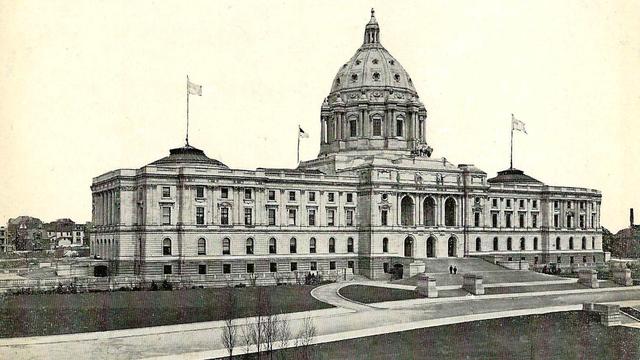Politics and history nerds, take heart. The Smart Politics blog at the Humphrey School of Public Affairs has just launched the Minnesota Historical Election Archive, a searchable website collecting the results of nearly 20,000 elections since Minnesota became a state in 1858.
It is the largest collection of Minnesota election data and a valuable resource for journalists, educators, scholars, and citizens interested in Minnesota history and politics.
The Minnesota Historical Election Archive is curated by Eric Ostermeier, research fellow at the Humphrey School, as a companion site to his long-running, influential nonpartisan political news site Smart Politics.
Smart Politics pioneered the first wave of data journalism in 2006 and has been frequently cited by journalists across the country for its unique blend of historically driven reports.
“The archive has been launched in an environment during which the public has demonstrated a strong appetite for data,” Ostermeier said. “Researchers can use the archive to explore Minnesota’s unique political history as a state with a strong third-party tradition, high voter participation, sporadic presidential primaries, and multiple offices that have toggled between partisan and nonpartisan and filled via election and appointment.”
The archive houses general, special, and primary election results across 17 offices: President, US Senate, US House, Governor, Lieutenant Governor, Secretary of State, Attorney General, Auditor, Treasurer, Railroad Commissioner, Railroad & Warehouse Commissioner, Public Service Commissioner, Supreme Court Chief Justice, Associate Supreme Court Justice, Supreme Court Clerk, state Senate, and state House.
Archive users can browse the election data by year, office, stage of election, political party, and legislative district, and the results have also been coded to enable filtering by candidate gender, incumbency, and margin of victory.
Users can also search for one of the more than 15,500 candidates for state and federal office.
The records also note interesting political firsts, unusual historical information, and brief candidate biographies. For example:
● In 1861, the first known gubernatorial vote for a woman in Minnesota was cast: a write-in for journalist and abolitionist Jane Swisshelm (pictured at left)
● The election of a milkman and political outsider Frank Larkin to the statewide office of Supreme Court Clerk in 1954 spurred the state Legislature to put forth a constitutional amendment to fill the office via appointment (which has been done ever since the amendment’s passage in November 1956)
● Following the death of 16-term Republican Secretary of State Mike Holm in 1952, a record 17 candidates vied for the GOP nomination in that September’s primary election
● The archive lists 282 candidates named Johnson who have run for state or federal office in Minnesota, compared to 221 Andersons, 151 Nelsons, and 96 Olsons
Among the many features of the archive is the inclusion of hundreds of links on individual election and candidate pages to related reports published at Smart Politics over the last 15 years.
“Showcasing Minnesota’s electoral history helps us better situate where we are going by shining a light on where we have been,” Ostermeier said. “By centralizing and making more easily accessible an important cornerstone of Minnesota history and politics – the elections of those who have governed and represented the state – this archive brings important state records out of the shadows to engage and inspire the public to put them to use.”
He added that the archive is not static; it will be updated with 2020 primary and general election results, and also when long-lost returns from the 19th and early 20th centuries are retrieved and as additional facts for thousands of elections are compiled.
The Minnesota Historical Election Archive was financed in part by the State of Minnesota’s Arts and Cultural Heritage Fund, through the Minnesota Historical Society.
The Archive is published by the University of Minnesota Libraries Publishing and designed by DataMade.


